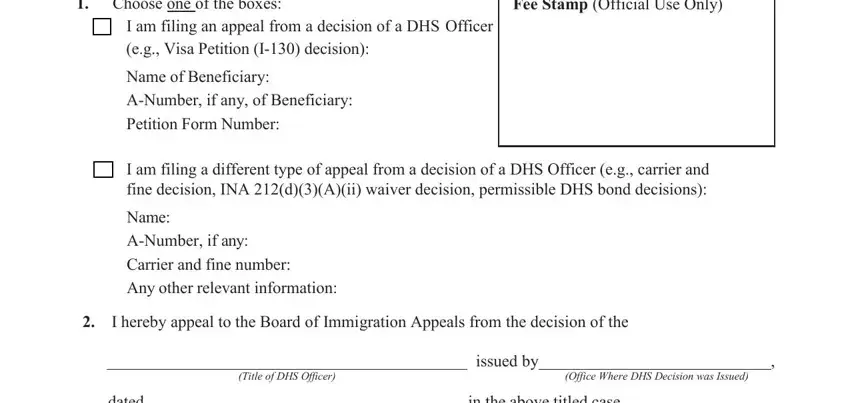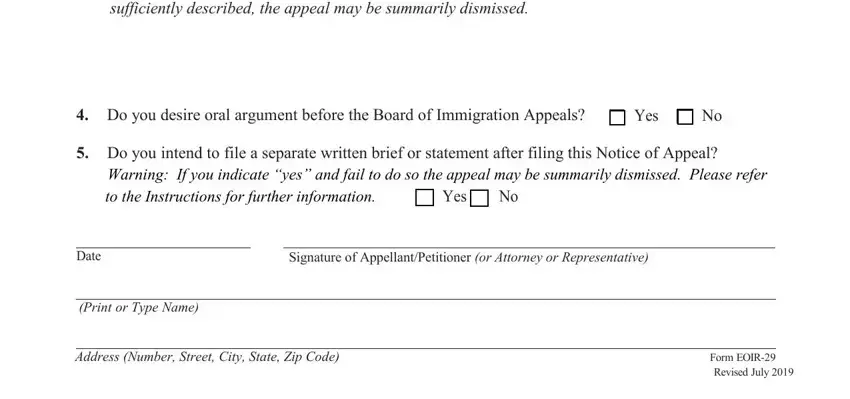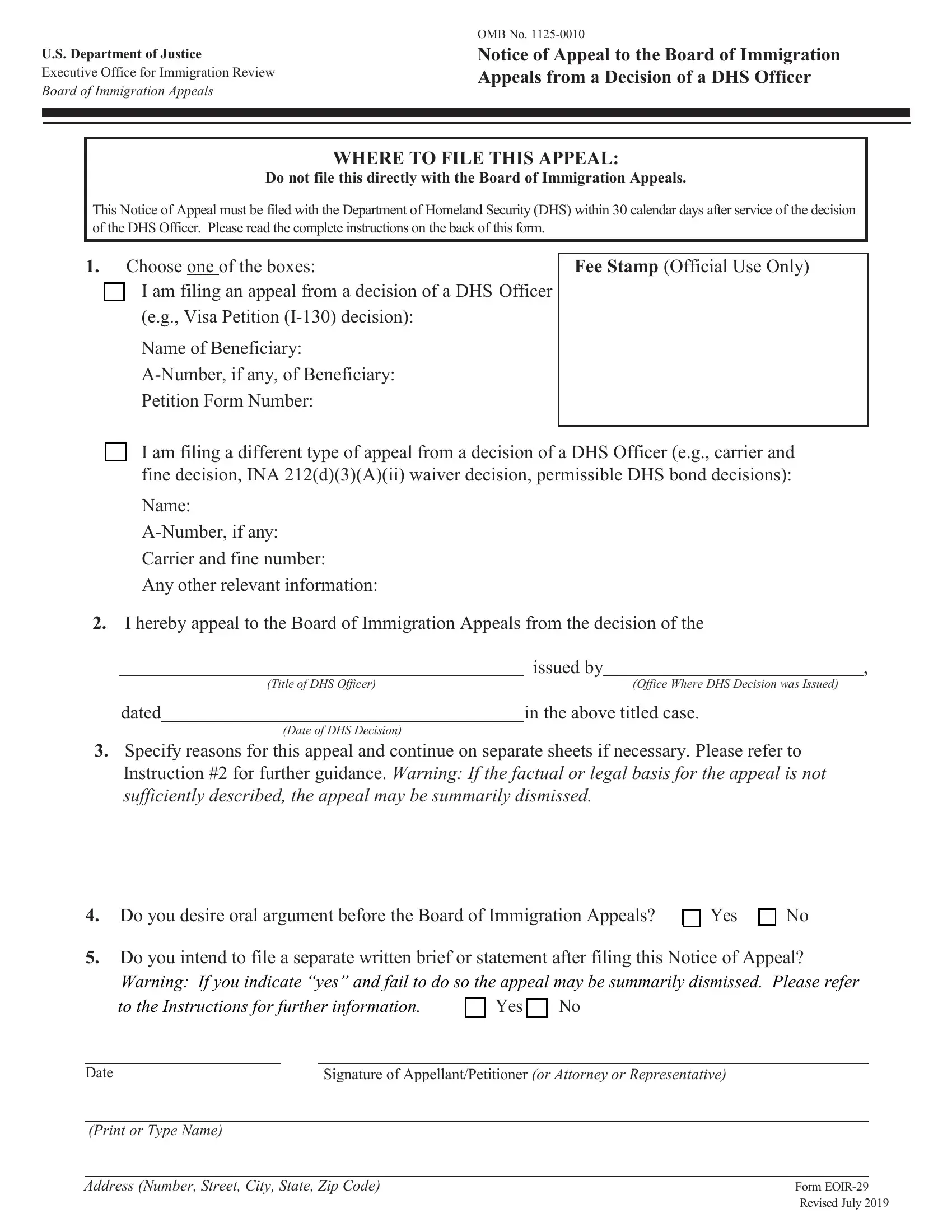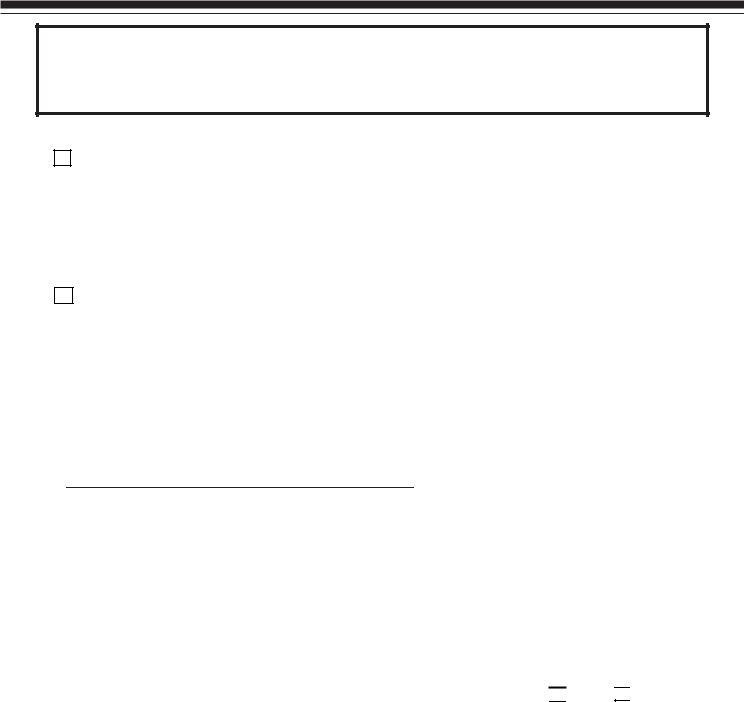GENERAL INSTRUCTIONS
(Please read carefully before completing and filing Form EOIR-29)
1.General Information. You are the “appellant” if you are filing an appeal from a decision of a DHS Officer. The Notice of Appeal (Form EOIR-29) asks for specific details about the underlying application you filed with DHS. Please refer to the decision of the DHS Officer for specific appeal instructions and for the requested details about the underlying application you filed with DHS.
2.Filing. You must file this Notice of Appeal with the Department of Homeland Security (DHS), U.S. Citizenship and Immigration Services (USCIS), or U.S. Customs and Border Protection (CBP). If the decision was handed to you by a DHS Officer, you must file this Notice of Appeal within 30 calendar days. If the decision was mailed to you by DHS, this Notice of Appeal must be received within 30 calendar days from the date the decision was mailed to you. Follow the instructions included with the decision. Do not send this Notice of Appeal directly to the Board of Immigration Appeals (Board).
If you are appealing a decision by a USCIS Officer denying a visa petition (I-130 application), please note the following: List the name and “A” number of the beneficiary at the top of Form EOIR-29. The beneficiary is not allowed to sign Form EOIR-29. Only the petitioner, or a self-petitioner, is allowed to sign Form EOIR-29.
3.Review. Most appeals are reviewed by a single Board Member. If you assert that your appeal warrants review by a three-Board Member panel, you may identify the specific factual or legal basis for your contention.
Cases will be reviewed by a three-member panel only if the case presents one of these circumstances:
-The need to establish a precedent construing the meaning of laws, regulations, or procedures;
-The need to review a decision by DHS that is not in conformity with the law or with applicableprecedents;
-The need to resolve a case or controversy of major national import;or,
-The need to reverse the decision of DHS, other than a reversal under 8 C.F.R § 1003.1(e)(5).
4.Fees. A fee of one hundred and ten U.S. dollars ($110.00) must be paid for filing this appeal. It cannot be refunded regardless of the action taken on the appeal. All fees must be submitted in the exact amount. Do not mail cash.
-Payment by bank drafts, cashier’s checks, certified checks, personal checks, and money orders must be drawn on U.S. financial institutions and payable in U.S. funds.
-If you live in the United States or its territories, make the check or money order payable to U.S. Department of Homeland Security (not “USDHS” or “DHS”).
-If you live outside the United States or its territories, and are filing your application or petition where you live, contact the nearest U.S. Embassy or consulate for instructions on the method of payment.
-When a check is drawn on the account of a person other than the appellant, the name of the appellant must be entered on the face of the check. Personal checks are accepted subject to collectability. If you pay by check, USCIS will convert it into an electronic funds transfer (EFT). This means USCIS will copy your check and usethe account information on it to electronically debit your account for the amount of the check. The debit from your account will usually take 24 hours and your bank will show it on your regular account statement. You will not receive your original check back. USCIS will destroy your original check, but will keep a copy of it. If USCIS cannot process the EFT for technical reasons, you authorize USCIS to process the copy in place of your original check.
-If you are filing your form at a USCIS Lockbox facility, you have the option to pay for your form filing fees using a credit card. Please see Form G-1450, Authorization for Credit Card Transactions, at https://www.uscis.gov/g- 1450 for more information.
-If you are filing your form at a USCIS Field Office, cash, a cashier’s check or money order cannot be used to pay




